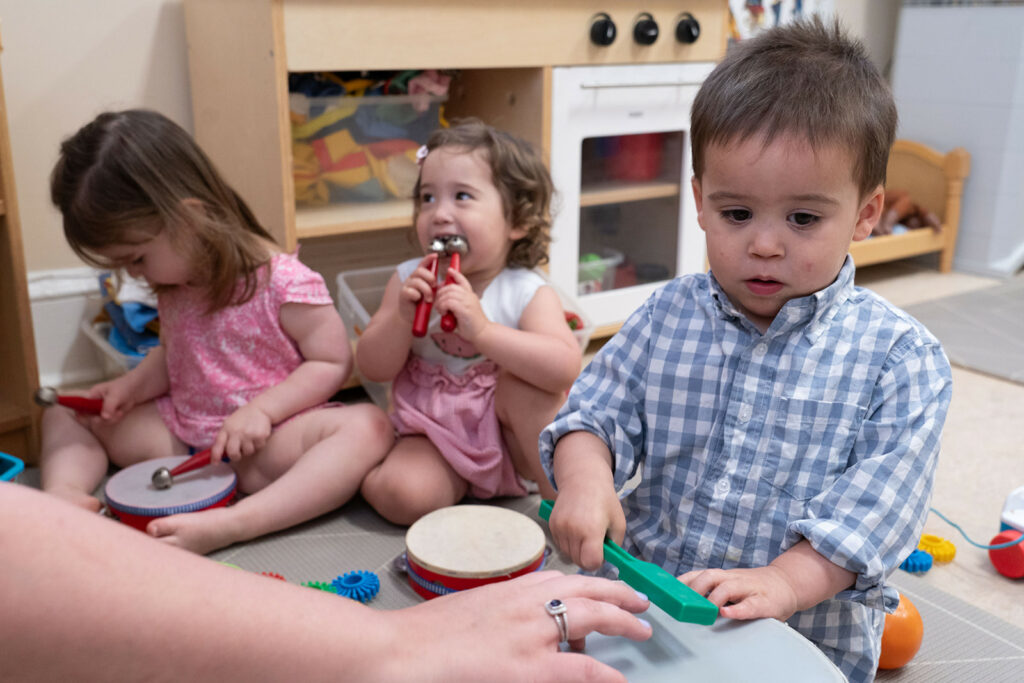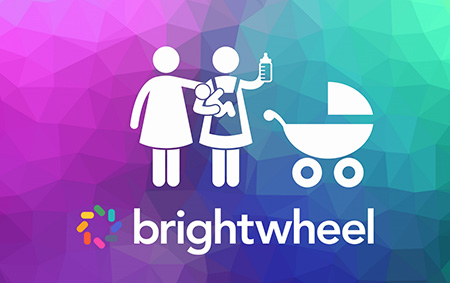
We are so pleased to have you consider partnering with us to get your child off to the best possible start. Of course you have questions! We find in general, that many are answers are covered below. For more detailed responses to your particular family concerns we look forward to hearing from you in more detail. Please don’t hesitate to contact us! At KinderHaus we are happy to assist.
KinderHaus is open from 7:30 a.m. to 5:30 p.m., Monday through Friday. Children should be ready to begin their day by 9 a.m.
Unless we receive your written consent, information regarding your child is not released to anyone, with the exception of data required by our regulatory and partnering agencies. All records concerning children attending KinderHaus are confidential.
We provide a safe, secure environment where children’s behavior is guided by clear and consistent limits, reinforcing positive behaviors while discouraging negative ones. As with all aspects of our program, we approach discipline from a child development perspective.
With infants and toddlers to age 2, we consistently use techniques such as distraction and redirection.
As children progress, we supplement these approaches with words to describe what they may be feeling. As they cognitively gain the ability to understand, we incorporate discussion about the logical consequences of negative behavior so they may learn to express their feelings in appropriate ways.
Our purpose is to encourage children to develop honesty, respect, trust and caring for others.
Our staff is eager to work with you to help your child grow in self-esteem and self-control. Through daily informal conversations and regular conferences to compare notes, we endeavor to complement and reinforce your efforts to help your child optimally develop appropriate patterns of behavior.
Children cannot be admitted to KinderHaus until it’s been at least 24 hours since they’ve had a fever, diarrhea or vomiting.
We do not accept any child who is feverish or looks ill on arrival. If your child becomes ill while with us, we’ll isolate them and immediately notify you so can promptly take them home. Licensing regulations prohibit us from providing care to sick children.
KinderHaus complies with America Academy of Pediatrics recommendations to reduce the risk of SIDS. Unless ordered in writing by your child’s physician, we place infants on their backs for sleeping. No positioning devices are used to restrict their movement. No soft materials or objects (pillows, quilts, comforters, bumper pads, sheepskins or stuffed toys) are permitted in our cribs.
You may expect daily communication via the Brightwheel app from your child’s teacher that includes an overview of food intake, napping, diapering and daily activities such as art, reading, play, etc. Teachers may also occasionally attach a photo or video of your child, or phone you as needed.
KinderHaus takes extensive sanitary precautions to address COVID-19. Click here for our current Covid protocol. Our staff regularly cleans and disinfects surfaces, toys and materials, following manufacturers’ directions for concentration, application, contact time and drying time prior to use by a child. In addition, all staff practice diligent hand hygiene, and we have signs posted in all classrooms as reminders of CDC protocols for cleanliness.
To allow families to spend time together, KinderHaus closes for U.S. federal government holidays. Depending on how holidays fall, we may also close before or after them. For example, we close early the day before Thanksgiving and remain closed through Thanksgiving weekend. We are also closed April 16, which is D.C. Emancipation Day.
Our normal schedule does not include use of television, computers or electronic media (videos, DVDs). From time to time, we may use a program such as GoNoodle® as a teaching aid and discussion stimulator. All electronic media is prescreened and must be nonviolent, high-quality education. It’s offered only as a free choice to meet a developmental goal and is limited to no more than 30 minutes per week, per child. Children under 2 1/2 years are not permitted screen time of any type.
Multiculturalism is vital for children because it sets social goals and promotes respect for all people and our environment. Through books, music, games and a wide range of activities, we teach children respect for our world and its diversity. To enhance understanding and respect for different cultures and beliefs, we encourage families to share their holiday traditions in an age-appropriate manner with our classes.
The most important factor in making toilet learning as low-stress and successful as possible, the family and teacher must partner to support the child when they are physically, psychologically and emotionally ready for toilet use by demonstrating awareness of bodily functions and curiosity about the process. Many pediatricians say that most children under 24 months are not physically capable of regulating bladder and bowel muscles. We’re committed to working with you to make sure that toilet learning is carried out in a manner consistent with your child’s abilities and your family’s concerns.



